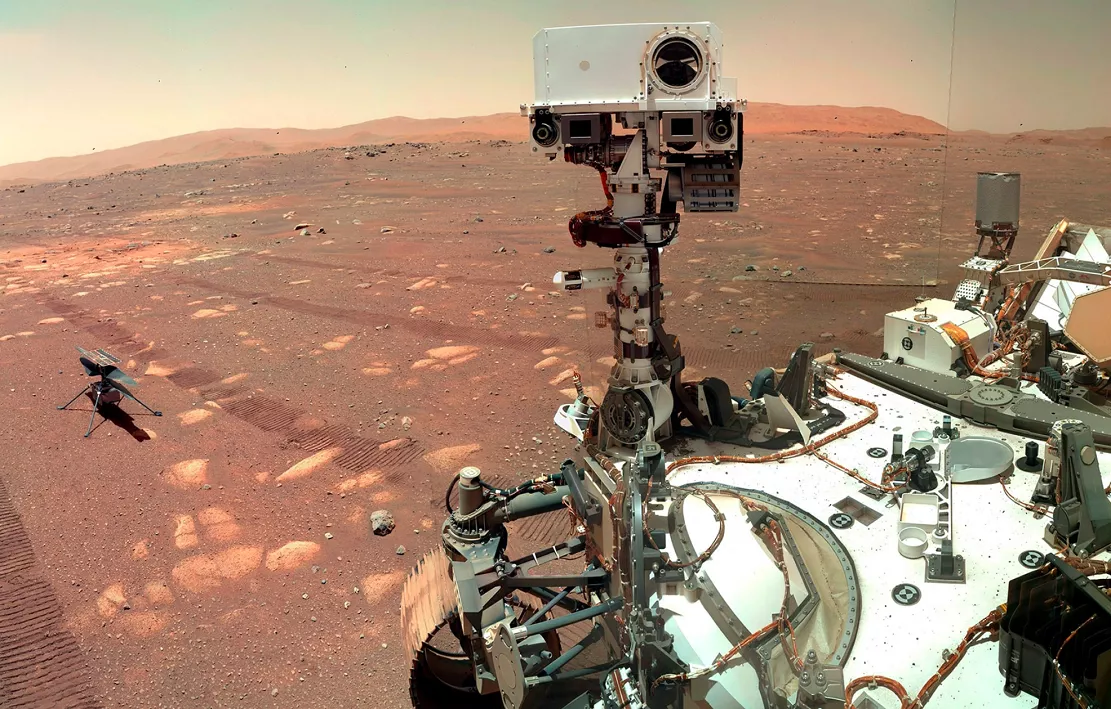NASA shared the voice of Mars for the first time last year, using a microphone placed on the perseverance spacecraft. But since then, scientists have been studying these recordings and have even created a playlist of the best recordings on Mars. But the most interesting thing about these recordings -- besides how quiet the planet is -- is that they give us a better understanding of how sound travels on Mars.
We are learning more about how sound travels on Mars
Sending humans to Mars is one of NASA's biggest goals. In fact, the space agency has planned a two person mission to the red planet in the next 20 years. One thing scientists are now learning is how sound travels on the red planet.
Last month, researchers published a new study in nature, which analyzed the sound captured by perseverance on Mars. Now, obviously, any of these recordings will always capture the fragmentary sounds of the rover's machinery. But researchers have found that the way sound travels on Mars changes with temperature.
The team found that most of the time, the red planet was eerily quiet. Given that it is a barren, cold wasteland with almost no atmosphere, this is not surprising. However, the researchers also found that the sound recorded on Mars was 20 decibels lower than the same sound recorded on earth. In addition, they found that high-frequency sounds seemed to move faster than low-frequency sounds.
Therefore, the sound scene of Mars is a more interesting one we have found so far. And because the composition of the planet's atmosphere changes over the course of a year, the way sound travels on Mars will also change.
Composition and speed

Baptiste child of Los Alamos National Laboratory pointed out that at some times, the audio from perseverance was so quiet that the team thought the rover's microphone was broken. As they continued to listen, they found that the way sound travels on Mars would change as the surface temperature of Mars decreased.
Chip said in a statement that Mars is the only place in the solar system where this happens within the audible bandwidth, because the carbon dioxide molecules that make up the atmosphere have unique characteristics. With the arrival of Martian winter, the carbon dioxide in the polar cap will begin to freeze.
When this happens, the density of the atmosphere changes, which makes the loudness of the environment change by as much as 20%. Scientists will continue to study the audio recorded by the perseverance. This will undoubtedly help us better understand how sound travels on Mars, and even more. But now, at least we know that the atmosphere of the red planet is killing some noise.
In addition, the researchers said that so far, the sound of gusts is the only natural sound that humans have collected on Mars.